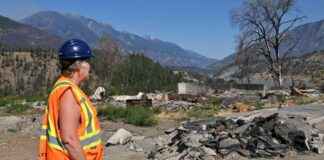In the world of rooftop solar developers, there’s a spectrum of practices and ethics that can make or break a business. From the shady door knockers to the reputable companies making waves in the industry, the landscape is diverse and ever-changing. Let’s delve into the complexities of utility business models and what it takes to thrive in this competitive field.
Government subsidies and GAAP accounting play a crucial role in funding solar developers’ businesses, with the most successful ones seeing up to 100% pre-tax profit margins. But what sets apart the good developers from the bad? It all boils down to integrity, customer service, and a commitment to quality work.
State Regulations and Application Processes
Navigating the state regulations and application processes can be a make-or-break factor for solar developers. In most states, all it takes is a general contractor’s license, insurance, and a licensed electrician to kickstart a solar installation business. The application process for interconnection is usually straightforward, with online forms and minimal fees. However, the timeline for processing applications can vary, ranging from 5 to 15 business days for smaller installations.
Developers who understand the intricacies of the application process and get it right the first time can build a solid reputation with utilities. On the flip side, those who struggle to navigate the system can face delays and a tarnished image within the industry.
Best Practices for Solar Developers
When it comes to setting up a successful solar business, attention to detail and customer care are paramount. Good developers prioritize warranties, maintenance contracts, and regular system checks to ensure customer satisfaction and long-term success. Having a physical storefront and a well-stocked inventory of parts can also streamline operations and build trust with customers.
Safety is another non-negotiable aspect of solar installations. Reputable developers invest in training for their crews, enforce the use of safety equipment, and conduct quality assurance checks to uphold industry standards. They also refrain from bundling solar and roofing services, ensuring that each aspect of the installation is handled with expertise and care.
Above all, the best developers see themselves as partners in the transition to sustainable energy. By upholding ethical standards, delivering top-notch service, and prioritizing customer satisfaction, they contribute to the industry’s growth and reputation.
In conclusion, the world of rooftop solar development is a dynamic and ever-evolving landscape. While challenges persist in the form of unscrupulous developers and regulatory hurdles, the industry’s future looks bright in the hands of those committed to excellence and integrity. By following best practices, prioritizing customer care, and upholding safety standards, solar developers can pave the way for a sustainable energy future that benefits us all.














